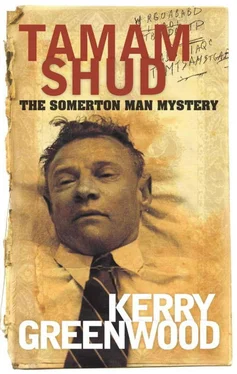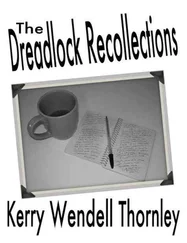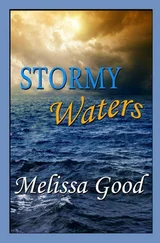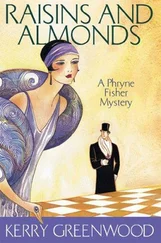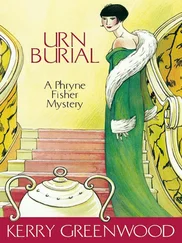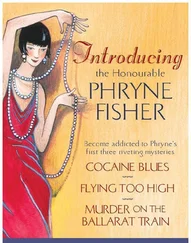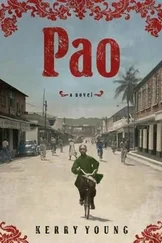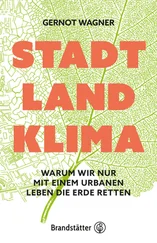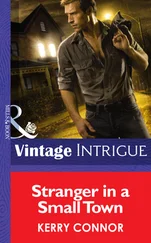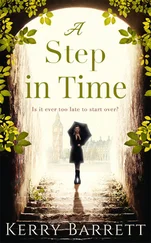Kerry Greenwood - Tamam Shud
Здесь есть возможность читать онлайн «Kerry Greenwood - Tamam Shud» весь текст электронной книги совершенно бесплатно (целиком полную версию без сокращений). В некоторых случаях можно слушать аудио, скачать через торрент в формате fb2 и присутствует краткое содержание. Город: Sydney, Год выпуска: 2012, ISBN: 2012, Издательство: NewSouth, Жанр: Детектив, Прочая документальная литература, на английском языке. Описание произведения, (предисловие) а так же отзывы посетителей доступны на портале библиотеки ЛибКат.
- Название:Tamam Shud
- Автор:
- Издательство:NewSouth
- Жанр:
- Год:2012
- Город:Sydney
- ISBN:978-1-742-23350-5
- Рейтинг книги:3 / 5. Голосов: 1
-
Избранное:Добавить в избранное
- Отзывы:
-
Ваша оценка:
- 60
- 1
- 2
- 3
- 4
- 5
Tamam Shud: краткое содержание, описание и аннотация
Предлагаем к чтению аннотацию, описание, краткое содержание или предисловие (зависит от того, что написал сам автор книги «Tamam Shud»). Если вы не нашли необходимую информацию о книге — напишите в комментариях, мы постараемся отыскать её.
Tamam Shud — читать онлайн бесплатно полную книгу (весь текст) целиком
Ниже представлен текст книги, разбитый по страницам. Система сохранения места последней прочитанной страницы, позволяет с удобством читать онлайн бесплатно книгу «Tamam Shud», без необходимости каждый раз заново искать на чём Вы остановились. Поставьте закладку, и сможете в любой момент перейти на страницу, на которой закончили чтение.
Интервал:
Закладка:
Milner was an Australian diplomat, who had become a Communist at Oxford in 1934. He had been seconded to the United Nations in New York in 1946. After he heard about Hill, although possibly for other and unrelated reasons, he packed up and left for Prague, where he spent the rest of his life peacefully teaching English Literature at the university. Meanwhile, Hill returned to Australia, resigned from the External Affairs Department in 1950 and vanished out of history
The weird thing – to me, at least – is that everyone who was anyone knew that the main Communist agent in Australia was Wally ‘Pop’ Clayton, codename KLOD. That sounds far too much like Tintin to me. KLOD, indeed. Clayton had a circle of like-minded friends and was described as ‘shadowy’ and ‘furtive’ but also ‘not unlikeable’. Because the source of the intelligence was far too secret to disclose, Wally was never prosecuted.
Andrews says that arrangements were made by the Russians to fly him to Moscow but his passport was revoked before that could happen. In any case, he ended up as a snapper fisherman in Nelson Bay.
That never happened in Callan .
Wally Clayton was missing between 1947 and 1952, presumably in Russia, so he probably didn’t know Somerton Man. But this Communist scandal was to provide Robert Gordon Menzies with fuel for scare campaigns for the rest of his seemingly endless career. It is hard to sort out what actually was happening, due to the difference of opinion among historians. The Left have insisted all along that there was no Communist spy scandal, that it was all a beat-up. The Right insisted that it was real and serious. Now that a large number of documents have been released, clear analysis has been obscured by the Right saying ‘nyah nyah na na-na, we told you so’. None of which is helpful. It was real; it wasn’t just a beat-up. Surely we can agree on that?
Having agreed, what we got was an attempt to outlaw the Communist Party, known as The Communist Party Dissolution Act , which passed into law in 1950. It was promptly challenged by the Waterside Workers Federation (of which my dad was a member), and they managed to attract the formidable Doc Evatt as their spokesman. The High Court struck down the Act by a majority of six to one, largely because it had a reverse onus – that is, you had to prove you weren’t a Communist. The court also stated that the penalties were too heavy – five years’ jail – and that the act precluded an appeal to a higher court. (Courts absolutely hate being precluded.) So Menzies decided to put it to a referendum, even though referenda have a truly sorry history in Australia.
One of the most quoted speeches in Australian legal history was made by Evatt. I was required to read it as a law student.
First the Reds, then the Jews, then the Trade Unionists, then the Social Democrats, then the Catholic Centre Party, then the Roman Catholic and Lutheran Churches. It is the old Totalitarian road; the road that led to the horrors of Belsen; the way that lost millions of lives in the Second World War and untold sacrifices of our peoples in the world struggle against Hitler, Mussolini and Japan.
It was a version of the speech attributed to Pastor Martin Niemoller:
First they came for the Communists and I did not speak out because I was not a Communist.
Then they came for the Socialists and I did not speak out because I was not a Socialist.
Then they came for the trade unionists and I did not speak out because I was not a trade unionist.
Then they came for the Jews and I did not speak out because I was not a Jew.
Then they came for me and there was no one left to speak out for me.
As my Welsh ancestors might have admiringly said, ‘There’s words’.
Evatt’s speech had its effect. The referendum in September 1951 failed and the Communist Party was allowed to continue to exist. And presumably Australia got better at spying.
Where atomic secrets were concerned, the places to be were Maralinga and Woomera. At Woomera they probably were testing rockets. Deserts are useful for that sort of thing. No chance of a wayward rocket wiping out anything other than the occasional kangaroo or the inconvenient and unimportant native. Or, indeed, Australian soldiers who didn’t matter, either. As for Maralinga, it was relatively near to Adelaide (in Australian terms, 300 kilometres to the west) and the British were planning on exploding something there with more bang than any given rocket, so there one could expect Russian spies to be positively swarming, like the serpents.
The main port for both Maralinga and Woomera was Port Augusta, which would have been full of unionists. On the wharf itself there were Painters and Dockers, Carters and Drovers, Waterside Workers Federation, Seamen’s Union and Railway members, a lot of whom were Communists and all of whom knew how to keep a secret. If there were spies trying to winkle out atomic secrets, you would have expected to find them in Port Augusta, not Adelaide. But the train does take you from Port Augusta to the city and various commentators have thought that Somerton Man got off a train on 30 November. Was it a train from Melbourne or, perhaps, from the other direction? Was Somerton Man coming into Adelaide with a dangerous secret for which someone killed him?
It is quite possible.
Consider the links between Somerton Man and my father. Alfred Greenwood, a signaller, had just been demobbed and spent some time stringing innumerable wires across the Woomera Rocket Range. I have a black-and-white photograph of a tall pole with a signaller sitting on the cross piece and nothing at all in any direction. ‘The lone and level sands stretch far away.’ My dad reported that the desert was hot during the day, cold at night, and had more venomous ‘Joe Blakes’ than he considered really respectable.

Soldiers from Woomera were allowed to go on leave into Adelaide. My father said that his beautiful tan – they all seemed to be clad only in shorts and boots – washed off in the harshly chlorinated brackish waters of the City Baths. They were the same baths where Somerton Man shaved his face and washed his body on his last day. He and my father may have passed each other in the locker room, noticed that each other was stylishly dressed (‘sharp’) and perhaps stopped to exchange a ritual ‘g’day’.
By 1948, governments all over were reluctantly releasing the reins of the economy that they had gripped so tightly during the war. Rationing – which had managed to equitably feed Britain, probably for the first time ever and had actually nourished previously unimportant creatures like pregnant women and children – was increasingly exasperating to the people in general. In Australia, some things were still rationed, notably petrol, but rationing in Australia had always been looser, possibly because this is a big country and someone usually knows someone who can lay their hands on a bit of beef or a pound of butter. For a consideration. Or a favour. Australians do not react well to regimentation.
Rationing was one of the reasons why the American soldiers had been so envied and loathed during the war. ‘Over paid, over sexed and over here.’ Not only were they better fed by their canteens, which had unheard of delights like ice-cream, but they had luxuries like perfume and stockings, dear to the female heart. They also wore very spiffy uniforms, tailored and smart, while the battle dress of the Australians was, in my father’s phrase, censored for my delicate ears, like ‘a wet sack full of spaghetti tied up ugly’. My dad used to do tailoring and alterations for his mates. He taught me to sew on a sewing machine, then gratefully handed over the worst job, replacing zippers, to me. He was good like that. No wonder I have problems with gender roles. He also taught me to skip. Boxers train by skipping. He was very adept, although he didn’t know the skipping rhyme ‘Old Mother Moore’ so I had to learn it in the school yard.
Читать дальшеИнтервал:
Закладка:
Похожие книги на «Tamam Shud»
Представляем Вашему вниманию похожие книги на «Tamam Shud» списком для выбора. Мы отобрали схожую по названию и смыслу литературу в надежде предоставить читателям больше вариантов отыскать новые, интересные, ещё непрочитанные произведения.
Обсуждение, отзывы о книге «Tamam Shud» и просто собственные мнения читателей. Оставьте ваши комментарии, напишите, что Вы думаете о произведении, его смысле или главных героях. Укажите что конкретно понравилось, а что нет, и почему Вы так считаете.
